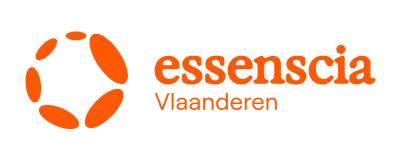Topics
We organise our actions in six thematic & strategic agendas:
Strategic Agendas:
Bio-economy
Circular Construction
Chemicals/Plastics
Manufacturing Industry
Food Chain
Water Cycles
Seven leverages provide additional support:
Leverage effects:
Lever Policy Instruments
Lever Circular Procurement
Lever Communication
Lever Innovation & Entrepreneurship
Lever Financing
Lever Jobs & Skills
Lever Research
What, why and how?
Why are we pursuing a circular economy?
Future visions 2050
How do we see our circular future?
About our management
Who steers what at Flanders Circular?
Davai Dumplings
Vegan dumplings with a Russian twist
The vegetarian and vegan offerings in our supermarkets are growing year after year. But not all “plant-based” alternatives are a priori the healthiest choice. Some products are high in sugar, quite a bit of salt and relatively low in protein. That is why Davai Dumplings brought a healthier and tastier alternative to the market: vegan dumplings with a Russian wink.
Pelmeni as inspiration
The kitchen table, mother's recipe book and a bottle of barbecue sauce: that's where Maybritt and Ruslan's story begins. The 'Davai duo' have been making pelmeni since 2018. These are Russian dough balls that you traditionally stuff with meat. Yet the duo soon moved away from that meat filling and sought a more sustainable alternative. When they found that there was no vegan version that tasted as good as the traditional pelmeni, they founded “Davai Dumplings.
Not a typical meat substitute
Davai's dumplings consist of 85% vegetables. Although they are not meat substitutes, as there is not a single piece of 'vegetarian meat' in them. The dough balls also contain as few dyes, preservatives or flavor enhancers as possible. That keeps their flavor pure, and makes them ideal as a plant-based alternative with your dinner or as an appetizer.
Davai Dumplings
Sectors
Themes
Organisations

















